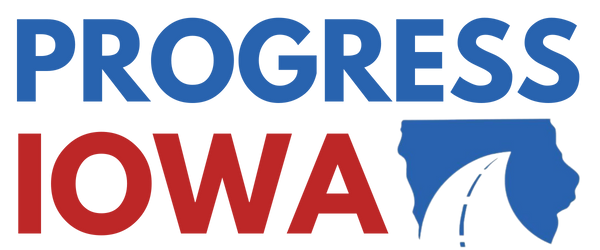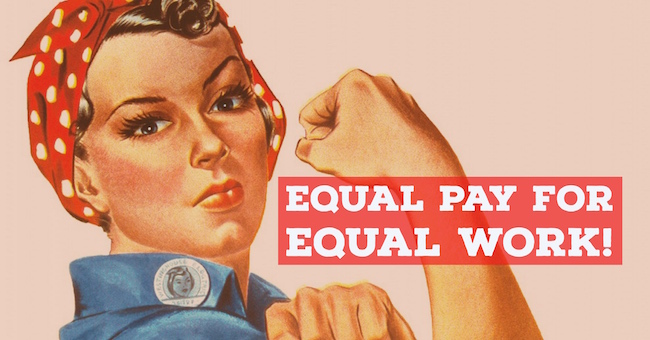Click to share this on Facebook || Click here to share on Twitter
Equal pay for equal work. It might sound like common sense, but unfortunately it’s far from reality.
The figures on equal pay are daunting. Women make just 80 cents for every dollar a man makes, according to data released by the United States Census Bureau. African American and Hispanic women are even further behind, making just 63 and 54 cents, respectively. And unfortunately, Iowa lags behind even those disappointing numbers. Women in our state make less than 77 cents on the dollar for what a man earns. Women and our families are being shortchanged thousands of dollars a year and hundreds of thousands of dollars over the course of a lifetime.
Some argue that women simply choose different jobs, or choose motherhood over career opportunities. But even within the same profession, women are paid less. Woman doctors and surgeons make just 71 percent of what men make, and female financial specialists make 66 percent compared to men in their profession. For lawyers and judges, the pay gap is 82 percent. And while three fourths of women who enter the workforce will get pregnant, half of working first-time mothers receive no paid leave to have their babies, according to the Census Bureau. Women are much more likely to have interruptions in their careers because of the high cost or unavailability of childcare, often resulting in lost pay raises when they return. These are difficult financial decisions forced upon women and families because of failing economic policies.
Those are the figures. But they don’t tell the whole story or how we can take action.
Today is Equal Pay Day, the day symbolizing how long into the year women must work to earn what men earned last year. It’s a day when we should remember not just the numbers, but the impact on women and our families. After all, women are the sole, primary, or co-breadwinners in nearly 72 percent of Iowa families. Hardworking women, trying to provide for their families, are falling further behind because of a discriminatory pay gap and economic policies that do little to support the tough choices families have to make.
Thankfully, there are solutions to make pay more equitable. In Iowa the legislature can start by creating paid leave and childcare policies to allow mothers to keep their jobs, avoiding the long gaps in employment that can drive down wages. And we need to raise the minimum wage instead of lowering it, and enact other policies that make Iowa a high wage state instead of engaging in a race to the bottom. Two-thirds of minimum wage earners are women, and that means women and families are struggling to get by because of Iowa’s low-wage policies.
Employers must examine and correct their pay practices. Businesses can get help in examining their pay practices through equal pay review guidelines from the US Department of Labor. Companies like Gap and Salesforce are taking action, and more businesses should follow suit. Women must also be empowered to advocate for equal pay, and to ask prospective employers to show that women and men are paid equally, as well as including a hiring process that seeks diversity, and the ability to join a union. Women in unions earn over a third more than women in non-union workplaces. And if there is unequal pay, women who are paid less should discuss the problem with their employer. If discrimination continues, it is the right of every woman to file a complaint with the U.S. Equal Employment Opportunity Commission.
Equal pay for equal work shouldn’t just be an idea. It should be the reality.
There are states around the country introducing legislation to address the pay gap, and women continue to recognize the importance of this issue. We need to move Iowa forward, and we need citizen action, legislative action, and participation from the business community to make it happen. At the current rate, the wage gap will not close for another 50 years. Women and hardworking Iowa families cannot afford to wait that long.
Authors:
Iowa State Senators Rita Hart, Pam Jochum, Liz Mathis, Janet Petersen, Amanda Ragan;
Iowa State Representatives Marti Anderson, Liz Bennett, Timi Brown-Powers, Abby Finkenauer, Ruth Ann Gaines, Mary Gaskill, Lisa Heddens, Monica Kurth, Vicki Lensing, Mary Mascher, Helen Miller, Amy Nielsen, Jo Oldson, Kirsten Running-Marquardt, Sharon Steckman, Beth Wessel-Kroeschell, Phyllis Thede, Cindy Winckler, Mary Wolfe.
Every female member of the Iowa legislature was invited to sign on to this column.Every Democratic legislator agreed, not one Republican legislator responded, and Lieutenant Governor Reynolds declined to sign.


